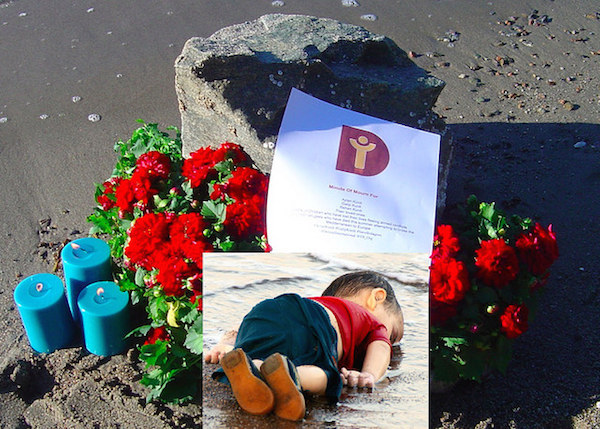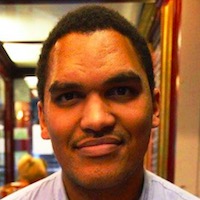Aleppo, the largest city in Syria, was under attack for more than four years—2012 to the end of 2016.
The city is in ruins now, devastated by the rebels, in 2012, that fought against the Syrian government.
It was then bombed continuously by the Syrian government using barrel bombs to kill thousands of people forcing hundreds of thousands to leave. Next, it was devastated by Syria’s ally, Russia, who decided that by bombing the city and fighting the government’s enemies was the same as fighting ISIS.
In the long Syrian civil war, hundreds and thousands of Syrians fled and battled for their lives, fighting against nature, fighting against their government and other hostile governments, fighting against smugglers, thieves, and murderers, just for their chance to make it to Europe or elsewhere for a better life—or any life at all—for themselves and their families.
But along the way, people perished. Many on the Aegean Sea, between Turkey and Europe, that was supposed to carry them to their new freedom. Many of the dead were old souls who ended up drowning. Others were young people, couples, young men, women, and children.
One day, I was walking around the living room with my three-day old daughter when I saw the image on the news of Alan Kurdi, the drowned Syrian boy, face down on the beach.
His body was limp, his nose deep in the sand, the water receding into his nostrils, under his forehead, and through the sand in his hair. He would never move his head again to shake out the sand; he would never speak again, or run, or laugh, or be held by his parents.
As I was holding my newborn daughter, I realized everything he wouldn’t be, and everything that is lost when the world loses a life. If my daughter had been older, I would have squeezed her tightly. Instead, I sat down on the couch, a lump of coal in my throat, and I did what I imagine most of us did—I tried to forget about it.
This poem is about me, on that day, pushing away the pain and the thoughts of those dying people because those thoughts were inconvenient to me. It is about me pushing away the pain of these dying people and justifying it, rationalizing it, by stating that the best thing to do was to live my life more fully in their memory—as if I would remember them every day.
The poem is about me not wanting to understand that those bodies strewn across the water like flower petals would not be the last bodies strewn across the water. It is about me convincing myself that there was really nothing I could do, a conclusion I had come to, without any effort whatsoever, just so I could feel better about myself.
It was Aleppo then, and now it is Somalia. Once it was Darfur and Haiti. Maybe now it is also Flint, Michigan, and Standing Rock, or the neighbor down the street, or that homeless person we pass by every morning whom we avoid eye contact with—because helping is often so damn inconvenient.
I wrote this poem to push myself to help more people, here, there, and wherever I can with what I have. And, to hold myself accountable when often it is so easy to push away others’ pain.
I hope this poem can help you, too. Help us all become more human and work to make this world just a little bit better.
~
And there,
Stretched out against it all,
The sea of things,
Bobby pins that float in quivering winds
With plastic bags and bottle caps,
and dreams, and dreams of sins.
What is the meaning of a bobby pin
Stuck in the gills of a fish slick with water?
What does a snow white wedding dress
Stretched out on the sea
Say about you and me?
The bodies that float with the sighing of the sea
And the fresh fallen rain,
Like apples disturbed in a carnival pail?
The Aegean is a tray laid with apples,
Aleppo is the orchard from which everyday
Her children are plucked and thrown away.
The bride would have had children.
She would have rolled out dough for them in the kitchen.
She would have laughed with her husband,
When he passed gas and shrugged.
She would have laid her pins on the dresser,
And brushed her long black hair back
Looking over her shoulder at the man
Laying on the bed and looking at her back
With his love and his lust
And knowing full well he would give his two lungs for her one breath.
Does he go up behind her? Does he hold her by her waist,
and kiss her on her neck as she sways?
Impatient love, you and I would say,
Young love is what we would say.
In that room when their children are sleeping,
And they’ve had their fill and the sweat subsides,
Does he hold her as they stare out the window,
and do they look up at the night sky
and dream about the dreams they’ll be living?
The faces of the bloated bodies face downward,
as the wind gently blows on their back,
their eyes, large as marshmallows, eye the depth of the sea
as they watch their dreams, heavy with death,
sink down.
And down,
And further down to the seafloor.
And what now, on this lifeless sea,
What does that say of you and me?
~
Author: Bernard Meyer
Image: Defend International/ Flickr
Editor: Deb Jarrett









Read 0 comments and reply